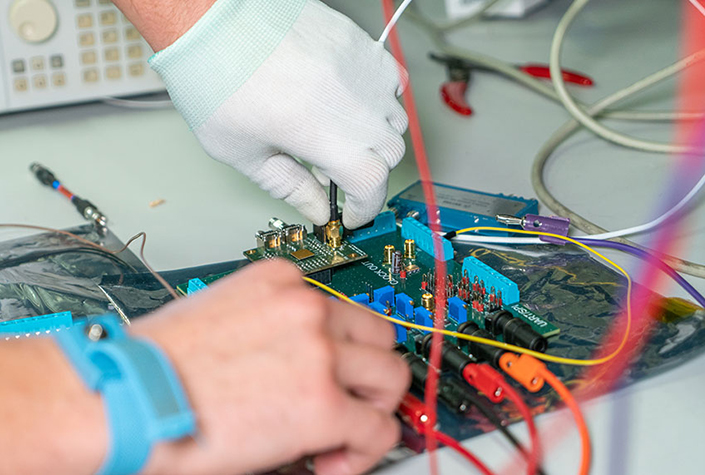New computer chips will heal themselves from radiation damage

Emily Oswald, Texas A&M Engineering
With an increase in commercial space flight and further exploration of our solar system on the horizon, there is a growing need for more robust integrated circuits, or chips, capable of weathering the harsh and damaging effects of radiation to which satellites and spacecraft are exposed.
David Dolt, a doctoral student in the Department of Electrical and Computer Engineering at Texas A&M University, is working with his faculty advisor and professor, Sam Palermo, to design self-healing radiation-hardened integrated circuits. These integrated circuits, or chips, are designed for the space environment with special circuit techniques that allow them to heal after experiencing damage from radiation.
To accomplish this, Dolt incorporates sensor circuits that monitor the different parts of the chip to ensure that everything is operating as it should. If something changes, these sensor circuits can vary things in the main circuit to restore the chip to a nominal working condition and compensate for the radiation-induced performance degradation.
“We are looking at developing a healing methodology that utilizes a micro-heating system that will restore devices with radiation-induced defects to a nominal state,” Dolt said.
Dolt measures the effects of radiation on these chips using two types of testing techniques. First, he performs a total ionizing dose test, which exposes the chip to an equivalent long-term term dose of radiation that degrades the circuit’s nominal performance as it would in a space environment over many years. He also performs single-event effect testing, which is when high-energy particles penetrate the silicon chip and cause instantaneous current pulses, or glitches, in the circuit. Dolt measures the sensitivity of a circuit to single-event effects at the Texas A&M Cyclotron Institute.
“We use the Texas A&M Cyclotron Institute’s particle accelerator to irradiate the chips and then measure how many upsets occur while we’re irradiating it to test the sensitivity of the chip,” Dolt said.
Long-term effects of radiation include disruptions in circuit operation, degradation and a limited lifetime. Dolt’s goal is to design chips for space applications such as satellites, space vehicles or spacecraft that are more impervious to radiation and subsequently have extended lifetimes.
Dolt’s research is supported by the Air Force Research Laboratory.

